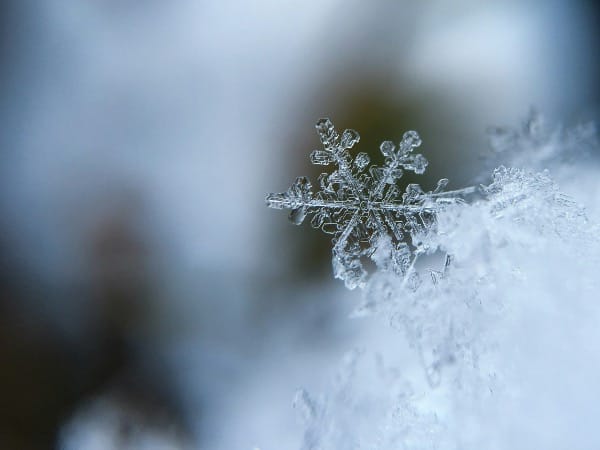We're all snowflakes
I apologize for the title .... sorta. Because, I think when you read the article, you'll understand what I mean, and maybe even agree.
Let’s start with the actual snowflakes. All snowflakes have something in common: they’re made of water. The thing about snowflakes that gets the most attention, though, is that they’re all different. It turns out that the unique shape each snowflake takes is a byproduct of the temperature and humidity conditions they experience while falling through the atmosphere.
In other words, they’re shaped by their environment.
Now, let’s turn to humans. In one way, we're all the same with our human bodies, brains, and various other parts. (Beyond that, it also turns out there's a lot of commonality when it comes to our hopes, dreams, fears, and values.) Like snowflakes, though, we’re also all unique. A component of that is genetic; the unique (or near-unique, for the twins, triplets, etc. out there) combination of DNA that we carry. However, another significant portion of what determines our shape is the conditions we go through as we develop; our environment, the people we’re around, the experiences we have.
Yeah, ok, so what?
Well, our commonality allows us to relate, to understand and empathize with each other, and connect through our common humanity. It can help us to overcome our fears about others and help us find a dose of humility when we need it. It's critically important to keep in mind and to look for when we're lost in conflict and judgement.
Our uniqueness allows us to make a special contribution to the world. That can take nearly infinite forms, much like the infinite possible shapes of a snowflake. Each has its own beauty that makes it special ... not because it’s better than others, but because it’s distinctive.
So, I encourage you to embrace both sides of your snowflake nature. It’ll be good for you and for the world around you.
